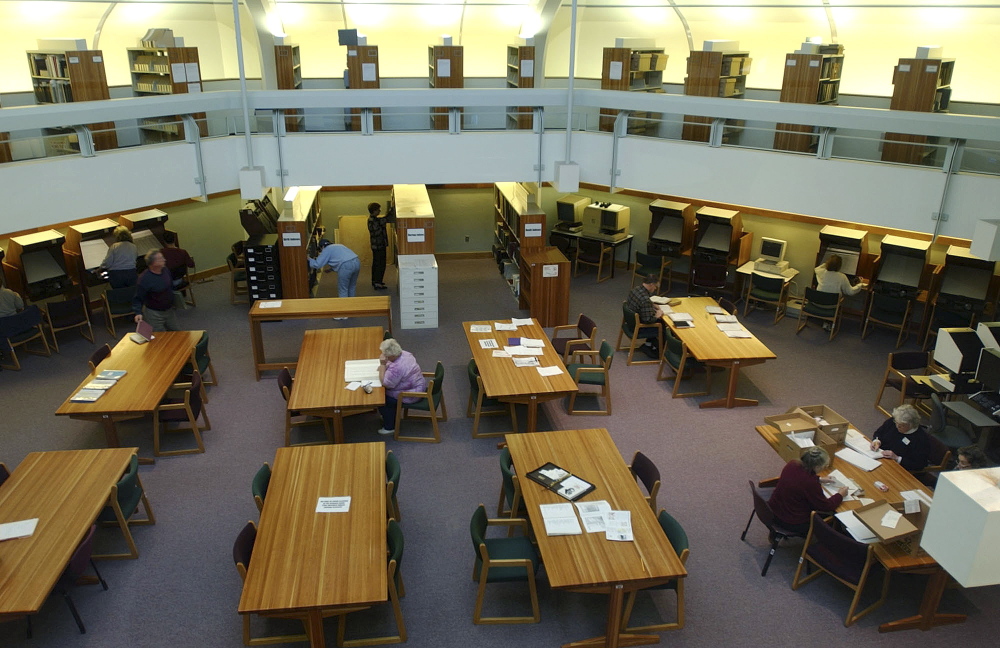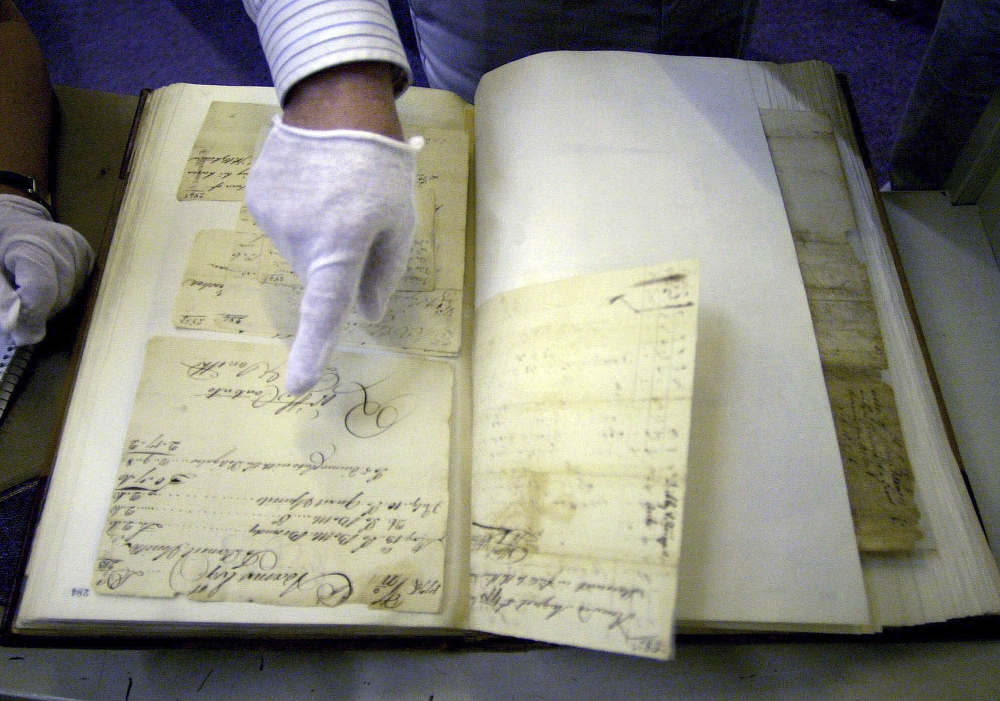BOSTON — The executive director of the Massachusetts Archives opens a metal cabinet and carefully removes what is considered the first foreign treaty finalized in the newly born United States.
The Treaty of Watertown, signed with the Micmac Indian Nation in July 1776 – just after the Declaration of Independence – is among the notable historical documents now competing for space with the mountains of far more ordinary paperwork generated daily by state government.
“There are few things in this state more important than its history,” declared Michael Comeau, whose job is to preserve it.
The archives, built in 1986 with the expectation that it would exhaust its space within 25 years, is bursting at the seams. Officials say the two-story facility at Boston’s Columbia Point has simply run out of room to store the state’s most valuable and timeless records.
A DOMINO EFFECT
The space crunch is triggering a domino effect that threatens to displace countless other public records of less permanent significance. Already the state archive has told other agencies it can’t take their day-to-day records any longer and will begin returning material by the box-load to agencies that in turn must find new places to store it – at costs that officials fear could run into the millions. Some of the material would be destroyed.
“At this point we can’t keep receiving records,” said Secretary of State William Galvin, whose office oversees the archives.
The State Records Center – a section of the archives that serves as a massive file cabinet of sorts for ordinary government paperwork – would be displaced by a planned $6.2 million, temperature-controlled storage vault for documents the state is required to keep forever, be they precious historical artifacts or more routine material such as birth records, boxes of which are now stacked haphazardly on the floor because of space constraints.
Massachusetts has received failing grades from government watchdogs who complain that public records requests are often must met with lengthy waits and exorbitant costs for the material. But Galvin and other officials insist the space problem won’t impede efforts to modernize records access, in part because of strict rules governing disposition of records.
DETAILED RETENTION SCHEDULE
The fate of public records is ultimately controlled by a little-known entity called the Records Conservancy Board, which uses as its bible a 280-page retention schedule that prescribes, in often painstaking detail, what material must be preserved and for how long.
Records the board deems permanent will remain in the archives, Galvin said, while those that aren’t required to be kept beyond the current fiscal year will be destroyed – with the caveat that no document will be disposed of if it’s the subject of a public records request.
The situation is also shining a light on government’s relatively slow pace instituting electronic document storage. While archivists say digitalization will ultimately mitigate physical storage demands by eliminating many hard copies, electronic record-keeping is more complicated and expensive than often believed.
“Any agency that thinks they can just scan things and throw them into cold storage and forget about them, that’s just not reality,” Comeau said.
Beyond the costs of hardware, software and personnel hours involved in scanning, agencies must take pains to index electronic files to assure they can be easily located and searched. The material must also be closely monitored to protect against degradation and obsolete formats, Comeau said.
“Think of an eight-track tape,” he said, referring to the ’70s-era predecessor to cassettes, CDs and digital audio files.
For now, agencies may be forced to free up space internally or contract outside vendors to store records, some containing sensitive information. That has officials in Gov. Charlie Baker’s administration pushing back on Galvin’s demands.
“The administration looks forward to continuing discussions with the secretary of state in order to come up with an equitable solution to securely storing public records,” said Elizabeth Guyton, Baker’s spokeswoman.
Galvin said his office is trying to work with other departments.
“This isn’t a case where by fiat we are saying, ‘come get your stuff,”‘ he said.
Send questions/comments to the editors.




Success. Please wait for the page to reload. If the page does not reload within 5 seconds, please refresh the page.
Enter your email and password to access comments.
Hi, to comment on stories you must . This profile is in addition to your subscription and website login.
Already have a commenting profile? .
Invalid username/password.
Please check your email to confirm and complete your registration.
Only subscribers are eligible to post comments. Please subscribe or login first for digital access. Here’s why.
Use the form below to reset your password. When you've submitted your account email, we will send an email with a reset code.